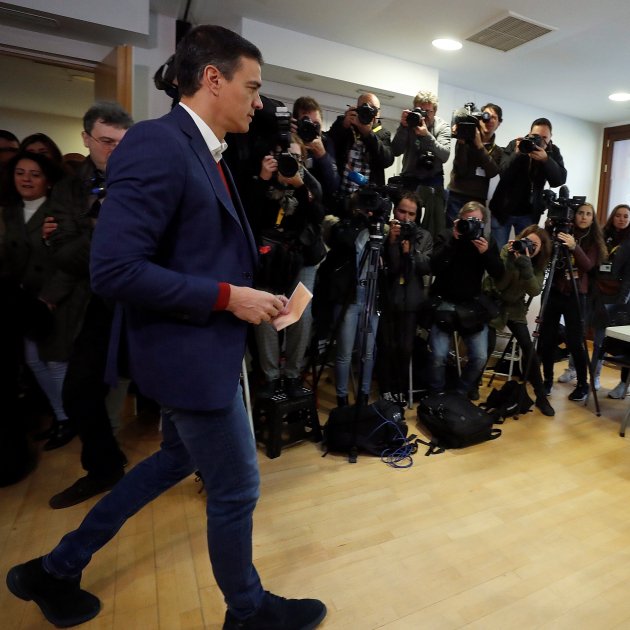Acting Spanish prime minister Pedro Sánchez called today's general elections in Spain to try and break the country's political deadlock and it seems that his gamble has failed - if the results of the survey carried out by GAD-3 for Catalonia's public broadcaster TV3 and Catalunya Ràdio are correct. The poll, released as voting closed at 8pm local time, predicts that Sánchez's Spanish Socialists (PSOE) will fall short of the results in the previous 28th April election (123 seats) to win only 114 to 119, while the major beneficiaries of the repeat election will be two right wing parties, the establishment right-wing Popular Party (PP), and in particular the far-right Vox which is forecast to surge ahead in Spain's lower house, the Congress of Deputies, while the other right wing contender Ciudadanos (Cs) will plummet and have to contend with the worst results in its history.
Thus the PP is expected to reach between 85 and 90 deputies (after winning 66 in April) and the extreme right party Vox would become the third force in the Congress, more than doubling its representation with between 56 and 59 deputies, in comparison with its present total of 24.
Left-wing Unidas Podemos may lose representation but will remain as fourth largest party in the chamber, with 30-34 deputies, after reaching 57 in April, predicts the poll.
The big loser is expected to be the Ciudadanos party led by Albert Rivera, which faces the worst results in its short history in Congress, falling from 57 deputies to 14-15 according to the GAD-3 poll.
The new left-wing party led by Íñigo Errejón, Más País, would enter Congress with three deputies, according to the poll.
The Catalan pro-independence parties
The pro-independence parties Republican Left (ERC) and Together for Catalonia (JxCat) are expected by the poll to almost repeat their results from 28th April and the left-wing pro-independence Popular Unity (CUP) party, which hasn't contested a Spanish general election until now, would enter the Spanish chamber with 3-4 deputies. ERC would obtain 13-14 deputies (now it has 15) and JxCat 6-7 (currently, 7).
In terms of the battle for the vote in Catalonia, between Catalan pro-independence groups and Spain-wide parties, ERC would narrowly beat the PSC, Catalan branch of the Socialist party, to win the largest number of the 48 seats in the Spanish Congress voted by Catalans. ERC are expected to win 13-14 (currently they have 15) and 23% of the vote; the PSC are predicted to take the same percentage of the vote, but one seat fewer, 12-13 - repeating or improving their current status of 12 deputies.
The pro-independence parties could for the first time win 50% of the Catalan seats in a Spanish general election: with the survey predicting a total between the current figure of 22 and a maximum of 25, which would be a majority of the 48 Catalan seats.
But who will govern?
With these results, Pedro Sánchez could only be invested as new prime minister if he obtained the support of all the parties that originally voted in his favour in the 2018 no-confidence motion which unseated Mariano Rajoy's PP government: that is a big ask, requiring not only Podemos and all its regional affiliates to back the Socialist leader, but also the Catalan pro-independence parties to whom he now declares himself diametrically opposed, as well as the two Basque sovereignist parties, PNV and Bildu.
This survey, prepared by the GAD-3 company, is a telephone tracking-poll survey which was conducted throughout the election campaign with almost 15,000 voters interviewed throughout the Spanish state, including 1,800 who vote in Catalonia. The last interviews took place on November 9th in Ceuta, Cantabria and Teruel.
Follow our live interactive coverage of results here (in Catalan or Spanish)
